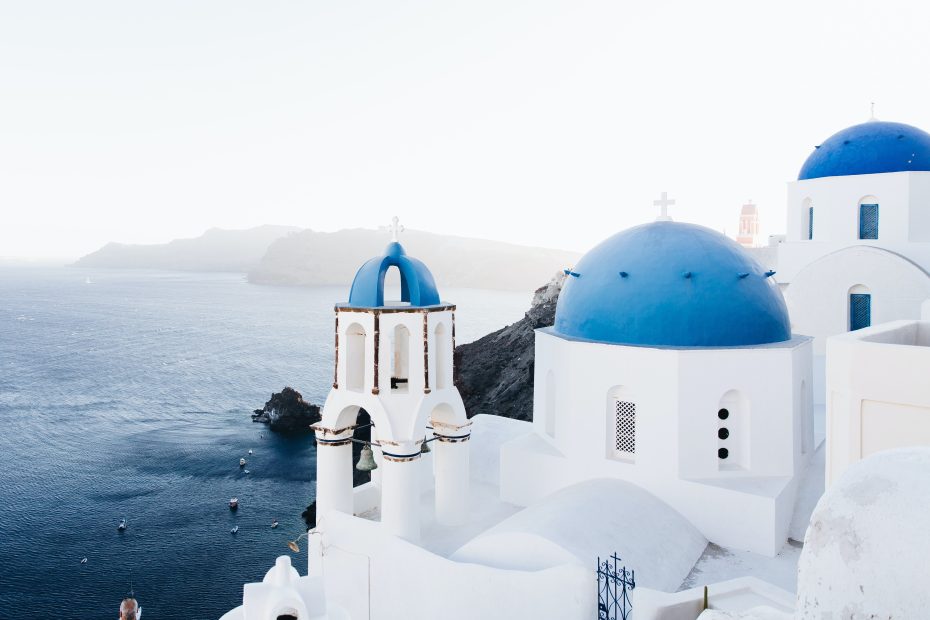Table of Contents
Introduction
Greece is a country of immense natural beauty and a rich cultural heritage spanning thousands of years. From the mythical Mount Olympus to the dazzling white houses of Santorini, Greece’s diverse landscapes provide the backdrop for its ancient ruins, whitewashed villages, and vibrant modern cities. The Greek landscape ranges from rugged mountains and forests to pristine beaches and tranquil islands dotted across the Aegean and Ionian Seas. Combined with its delicious Mediterranean cuisine, soulful music, and welcoming people, Greece offers an unforgettable travel experience.
Mount Olympus
The tallest mountain in Greece, Mount Olympus has great mythological significance as the home of the 12 Olympian gods in ancient Greek religion, including Zeus, Hera, and Apollo. Mount Olympus National Park is a hiking paradise with lush forests and incredible biodiversity. Visitors can explore scenic gorges, waterfalls, and alpine meadows on hundreds of miles of hiking trails. As the first national park established in Greece, Olympus displays the country’s stunning natural splendor.
Athens
As the birthplace of democracy and center of the ancient Greek civilization, Athens is a city steeped in history. The magnificent Acropolis sits atop a rocky outcrop, crowned by ancient architectural masterpieces like the iconic Parthenon. The ultra-modern Acropolis Museum displays artifacts from these ancient monuments. The charming Plaka district provides a glimpse of traditional life with its narrow cobblestone streets lined with cafes, restaurants, and souvenir shops.
Islands
Greece’s islands each have their own unique ambiance, from the volcanic geological wonders of Santorini to Mykonos’s glamorous beaches and resorts to Crete’s Venetian and Byzantine history. Santorini’s whitewashed villages perched on cliffsides overlook the stunning caldera formed by an ancient volcanic eruption. Mykonos is famed for its cosmopolitan nightlife and beaches with crystal-clear waters. As the largest Greek island, Crete displays a tapestry of landscapes from mountains to beaches, along with significant Minoan and Venetian ruins.
Food
Greek cuisine reflects the flavors of the Mediterranean with its fresh seafood, olives, tomatoes, feta cheese, and aromatic herbs. The Mediterranean diet, with its focus on fruits, vegetables, olive oil and fish, is praised as one of the healthiest diets in the world. Simple dishes like moussaka, stuffed grape leaves, Greek salad, and grilled octopus are representative of Greece’s culinary traditions. Meals are often accompanied by ouzo or retsina and concluded with thick Greek yogurt or baklava pastries.
Language and Culture
The Greek language, originating from ancient Linear B script, is the oldest recorded living Indo-European language and retains strong connections to its ancient roots. Greek mythology and epic literature like Homer’s Odyssey and Iliad provided the foundation for Western storytelling traditions. Greece’s ancient philosophers like Socrates, Plato, and Aristotle also profoundly shaped Western thought. While thoroughly modern, contemporary Greek culture still pays homage to its antiquity through customs, arts, and religion.
Music and Dance
The bouzouki, a stringed musical instrument related to the mandolin, accompanies much of Greece’s traditional music. Folk songs and energetic circle dances like sirtaki and kalamatianos often accompany festivals and celebrations. Crete has its own distinct folk music tradition full of lyricism and intricate rhythms. Greeks are exceptionally proud of their musical heritage, with music heavily incorporated into everyday life.
Conclusion
With its unparalleled history as the cradle of Western civilization, stunning diversity of landscapes, and rich cultural traditions, Greece offers endless possibilities for exploration and discovery. The intersection of Greece’s natural splendor and human achievement over thousands of years creates a one-of-a-kind travel experience. Visitors cannot help but be enchanted by Greece’s enduring legacy, which continues to inspire people around the world. The unique blend of nature and culture truly makes Greece a must-see destination.
FAQs
What are the best places to visit in Greece for ancient history and archaeology?
Some of the top places in Greece to experience ancient history and archaeology include Athens, Delphi, Knossos and Crete, Mycenae, Olympia, the Temple of Poseidon at Sounion, and the Sanctuary of Asklepios at Epidaurus.
What are some quintessential Greek dishes and drinks to try?
Classic Greek foods and beverages to sample include moussaka, souvlaki, Greek salad, tzatziki, feta cheese, olives, ouzo, and Greek coffee. Sip retsina wine for an authentic Greek experience.
What types of activities are popular on the Greek islands?
Visitors flock to the Greek islands to soak up the sun at beautiful beaches, go sailing and boating, scuba dive to explore undersea life, hike island trails for scenic views, and wander through charming villages.
What is the best way to get around when visiting Greece?
Greece has an extensive public transportation system of buses, trains, ferries and an Athens metro that makes getting around easy, especially between major cities and tourist destinations. Renting a car allows maximum flexibility for hard-to-reach areas.
Which festivals and events represent Greek culture?
Famous Greek festivals include Carnival and the Athens & Epidaurus Festival in spring, midsummer celebrations in June-August, religious festivals like Easter and Dormition of the Virgin Mary, and the Athens International Film Festival in September.
